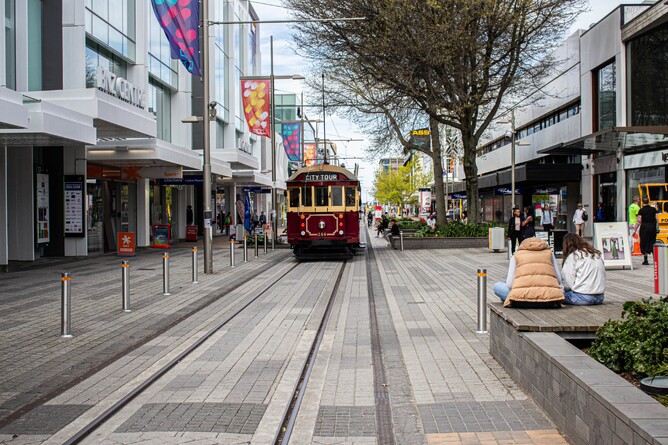“Connections between people and churches really started gaining traction last year—ironic given 2020 was a year where we experienced increased restrictions because of COVID-19!”
Lawson Scott as served as the CCCNZ Canterbury Regional Enabler since 2016, a voluntary role where he seeks to encourage connection among Open Brethren heritage and independent churches, campsites, and support ministries in Canterbury.
“We’re all fiercely independent, we look different and feel different as churches, but we’re united in working together for a common cause: seeing people in Canterbury hear about and know Jesus as their saviour and growing to love, and serve, like him”.
Practically this ‘working together’ takes a variety of forms. From regional eldership retreats to prayer gatherings, combined youth leadership training events, even discussions about church life amid COVID restrictions:
“We had churches without capability to live stream joining live streams of services from other local CCCNZ churches during lockdown, and discussions among leaders like ‘How are you doing communion within restrictions?’ It has been great to share and learn from each other”.
Church planting and revitalisation is also a key area where people from the region have been working together. Leaders from three CCCNZ churches (Rutland Street Church, Riccarton Community Church and Bryndwr Chapel) have recently formed a reference board to support a church plant in Lincoln (a town in the Selwyn District, on the outskirts of Christchurch). Two churches—Rowley Bible Church and Bryndwr Chapel—have been talking about how they could be working together to meet ministry needs and revitalising ministry in their community.
The team has grown too—with NZ Rally Coordinator Tony Foster (Rutland Street Church) and CCCNZ Regional Youth Enabler Matt Meek (Riccarton Community Church) playing key roles in strengthening connections.
As churches face an increasingly difficult legal, logistical, and spiritual climate, there is a growing sense of the need to work together, says Lawson: “Isolation becomes problematic, as you realise the need to support, but also input and advice”.
It is worth pointing out that this enthusiasm for working together has grown over the past five years, and it has developed with relational connections. “It was a slow start,” says Lawson, “but I believed in what CCCNZ was hoping to achieve, and I focused on establishing a coalition of the willing—I found people who ‘got it’ and we went from there. Over time that group has grown as people have started to see the positives in connecting and working together”.
People have come forward to work together, “one of the most encouraging things is seeing people work together as a team,” says Lawson, “people have picked up responsibilities and are taking the lead on connecting with others”.
Geoff Stark from Westchurch recently took on organising the latest Canterbury Prayer Gathering, along with other leaders, where people from different churches came together to pray for their region. He says it was a real encouragement to see the diversity of churches represented: “I looked around and thought how different each church represented is, and yet we were able to come together and pray—which is so important at a time like this. Our unity in desire to see the gospel go out was really profound”.
Churches in Canterbury have also been strengthening their relationships, as they work together to reach their community. Both Rutland Street Church and Westchurch run CAP debt centres, seeking to lift the burden of physical debt and at the same time being open talk to people about spiritual burdens. “It has been good working together with members of Rutland Street to assist people in need,” says Geoff.
CCCNZ Ambassador Mark Grace says the connections established across the Canterbury region are particularly encouraging: “We’ve seen a real commitment to personal connection and relationship growing in Canterbury. It’s worth highlighting that this growth has happened at a local level. It hasn’t been the CCCNZ staff team driving these connections from afar, but instead offering support when requested. We’re praying we’ll see something similar develop in many different regions across Aotearoa, New Zealand”.
The pressure of navigating ministry in the next few months and years of the pandemic rests heavily on many leaders. Why not reach out to other CCCNZ churches and leaders in your region to offer support and encourage one another? If you’re not sure where to go or who to connect with, check out our list of Regional Enablers and linked in churches.



